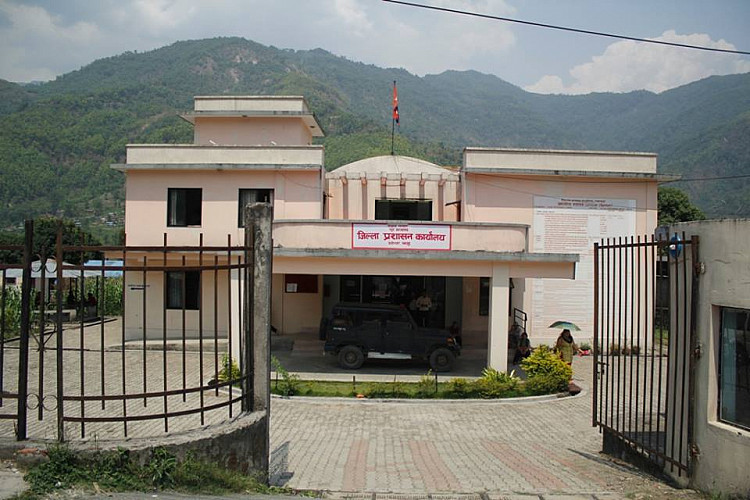Hitman Gurung: I Have to Feed Myself, My Family and My Country I. | 2012 -
Nepal
|Installation, Photography
I Have to Feed Myself, My Family and My Country, since 2012
Hit Man Gurung’s series ‘I Have to Feed Myself, My Family and My Country’ addresses labour migration, a phenomena prevalent in South Asian countries like Nepal. The labourers, most of whom are young and middle-aged, come from marginalized and underprivileged backgrounds. They leave their families and their homeland with the dream of pursuing a better life. Sadly, migrant labourers are often subjected to exploitation. Abuse, slavery-like conditions and untimely deaths are common among migrant workers.
Gurung’s various media of artworks are also a reflection of Nepal’s rapidly changing socio-political and socio-economic landscape: a decade long People's War (1996-2006), unstable governments and the impact all of this has had on the personal and professional lives of Nepali citizens. In parallel, his art also speaks to the strong impact of global capitalism, the dramatic economic boom in the Middle East and Southeast Asia and their unprecedented investment in infrastructure development, leading to a high demand of cheap labourers; and consequently, stitching the various patterns of mass migrations seen in Nepal.
This recent wave of migration from Nepal is the highest it has been since the end of the Second World War. During both the World Wars, hundreds of thousands of Nepali men were mobilized to fight for the British Army as Gurkhas. Those who joined the army almost exclusively belonged to the marginalized indigenous groups such as the Gurung, Magar, Rai and Limbu.
Hit Man belongs to one of these ethnic groups; men from his community have been serving as Gurkhas for several generations. However, the pattern of migration has now changed. People from his and other ethnic groups are migrating as temporary labourers; most of whom hold menial, low-paying jobs. Nepal’s economy is heavily dependent on the remittance sent by these very workers. Globally, Nepal ranks high in terms of foreign remittance as a percentage of the country’s GDP. Yet, the government has not paid serious attention to the rights of migrant workers; neither has it developed better policies regarding their safety.
Gurung has traveled to his ancestral homeland and different parts of the country, conducting research in order to explore how migration has dramatically changed the social fabric of Nepal over the years.















